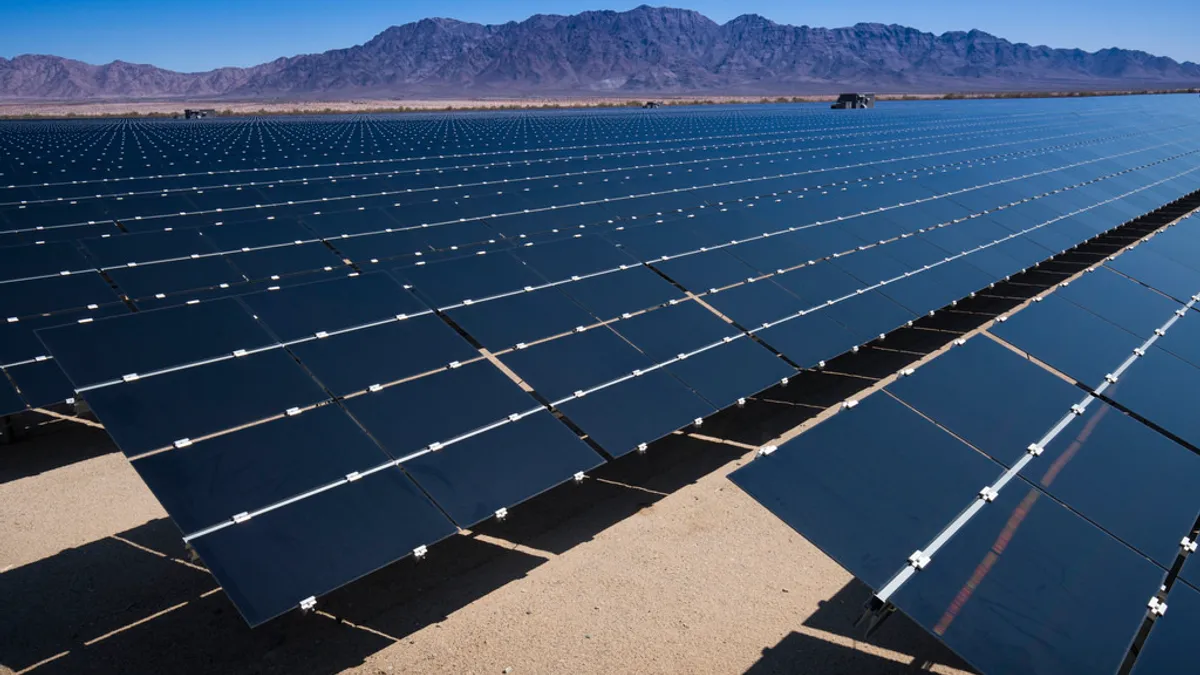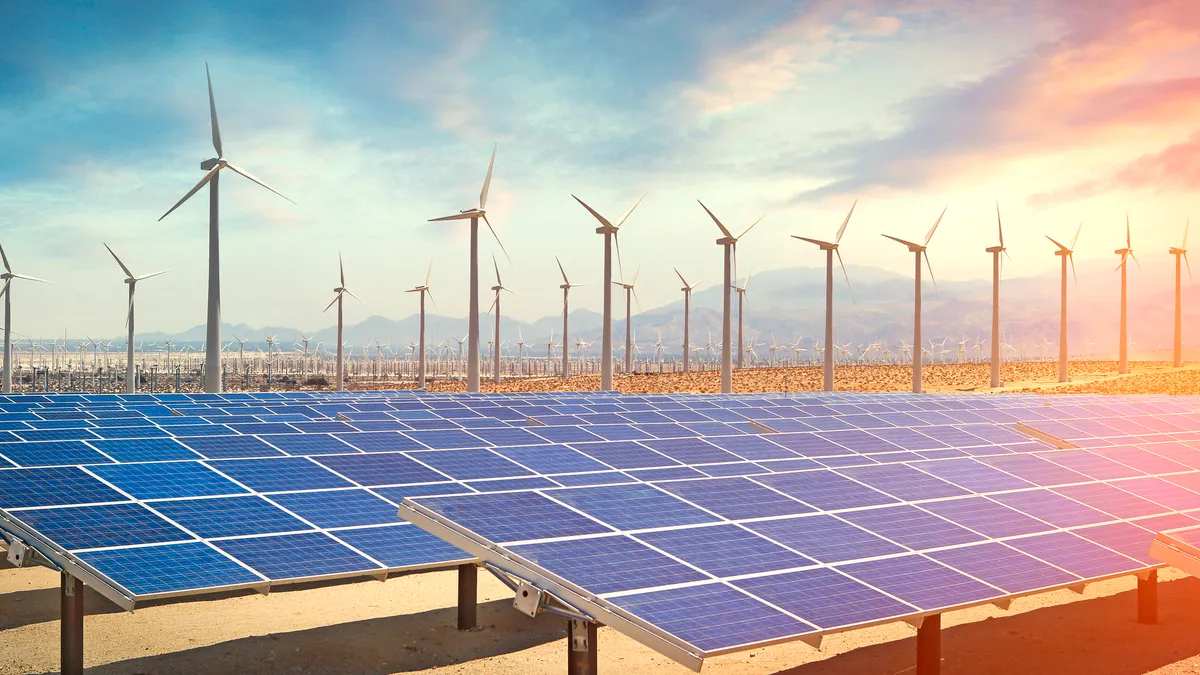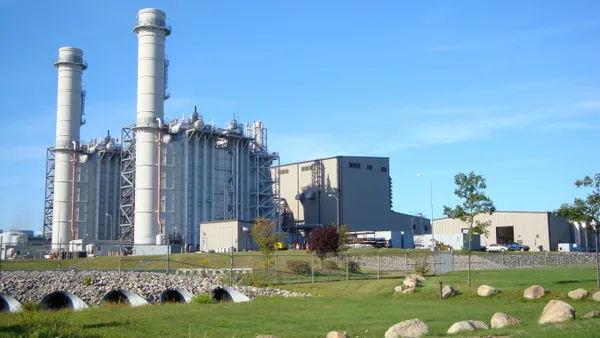Dive Brief:
- AES announced on Tuesday a 10-year agreement to be the sole supplier of energy to three Google data centers in Virginia, providing clean power around the clock through a 500-MW portfolio of resources.
- Through the partnership, AES will decarbonize Google's load in Virginia. The partnership "lays a blueprint for other companies looking to decarbonize their own operations," Michael Terrell, Google's director of energy, said in a statement.
- AES assembled a portfolio of its own projects and renewable generation by third-party developers, simplifying cost-efficient procurement for the tech company, it said. Part of the portfolio will be new renewable energy projects located in Virginia, according to Gail Chalef, global external relations senior manager at AES.
Dive Insight:
In 2018, Google announced its pursuit of 24/7 clean energy for its data centers and corporate campuses around the world, releasing statements last September about a two-pronged approach it was taking to sign additional power purchase agreements for renwable resources and to align its energy needs with the regional availability of clean energy.
In a recent white paper, the tech giant outlined a path for ensuring, as part of its corporate sustainability goals, that the regional energy markets it participates in also have 100% clean energy available 24 hours a day.
Google is already working with M-RETS, a nonprofit that tracks and validates clean energy attribute certificates for hourly data, starting in the Southwest Power Pool and the Midcontinent Independent System Operator wholesale markets. The partnership with AES offers less complexity for the tech company, as a third party would manage its energy use.
"This first-of-its-kind solution, which we co-created with Google, will set a new sustainability standard for companies and organizations seeking to eliminate carbon from their energy supply," Andrés Gluski, AES president and CEO, said in a statement.
The AES portfolio will require approximately $600 million for 500 MW of clean energy. As the sole supplier to the data centers, AES would represent Google's Virginia energy needs in the PJM Interconnection market, according to Chalef.
Virginia is host to other data centers, including those of Amazon Web Services, and those companies have decarbonization goals of their own. The largest investor-owned utility in the state, Dominion Energy, had previously blocked tech companies and other large customers from leaving its service to access cheaper options for clean energy.
While regulators later granted customers the option to leave Dominion's service, the utility has also been announcing a a buildout of its own clean energy resources. Dominion announced Monday that its is submitting requests to purchase a large group of solar, wind and energy storage projects with state regulators in its annual filing. State regulators approved on Friday the utility's procurement of roughly 500 MW among nine solar projects. Dominion will own and operate three of those projects, totaling 82 MW.
The Virginia Clean Economy Act, passed in 2020, requires the utility to request state regulatory permission by the end of 2035 to construct or acquire 16.1 GW of solar or onshore wind resources in the state. It must purchase about one-third of those resources from third-party owners. The utility also has plans to add 2.6 GW of offshore wind.
CORRECTION: A previous headline did not fully convey the resources AES is providing. It is managing a portfolio of clean energy resources for the data centers.















